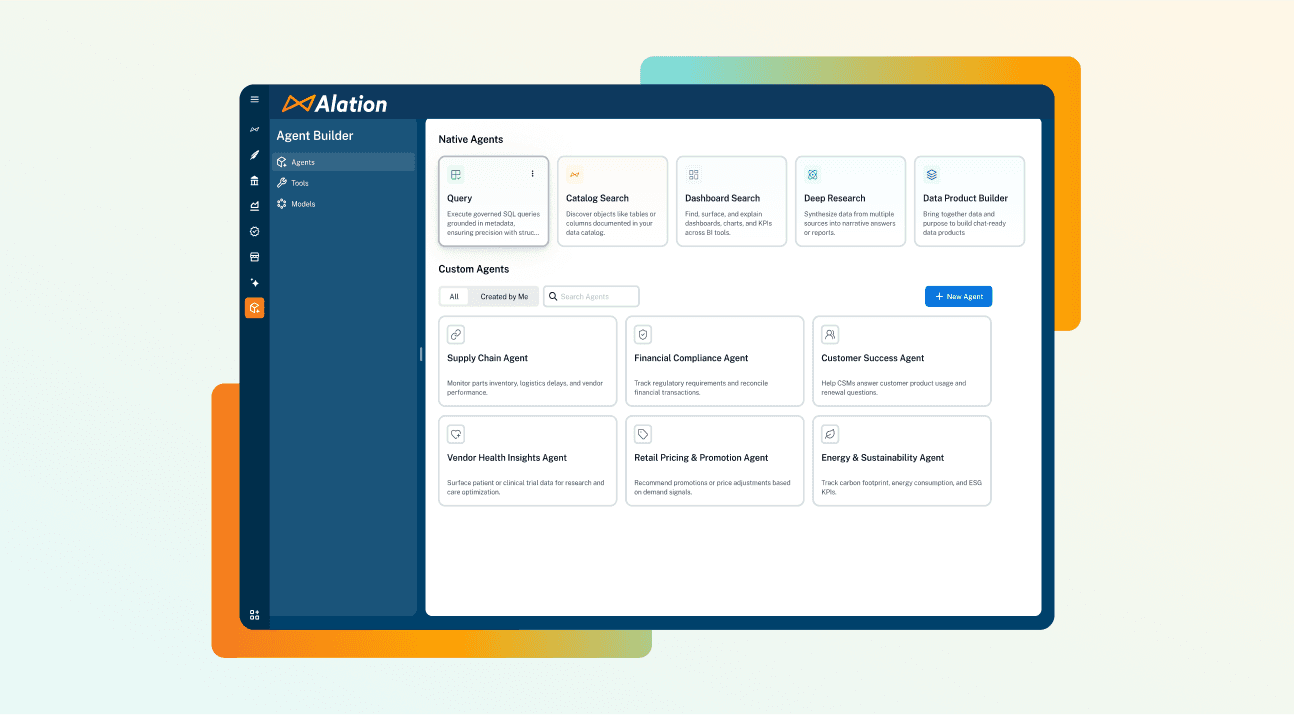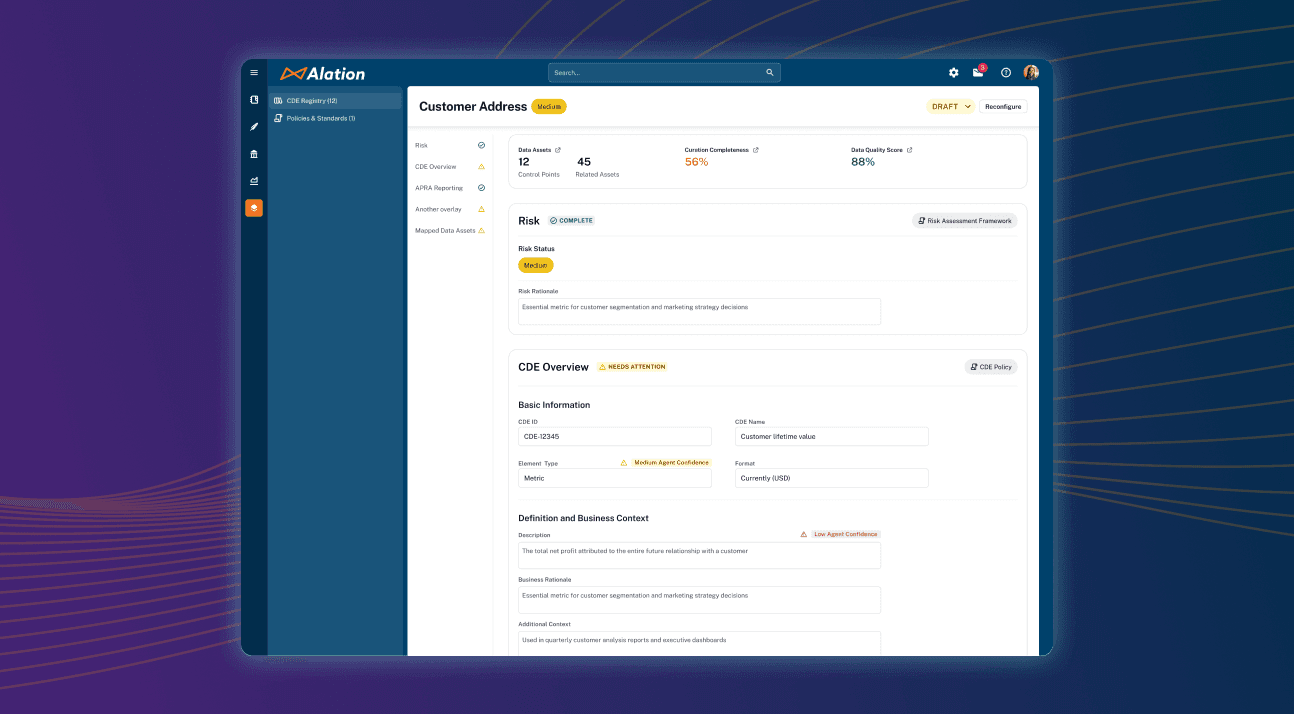Data Digest

Blog
From Prototype to Production: Introducing the Alation Agent Builder
Editor’s Note (November 2025): The Alation AI Agent SDK is now part of Alation Agent Studio — our unified platform that combines the SDK with the new Agent Builder for a complete, metadata-aware agent development experience.
Read now

Blog
Introducing Alation CDE Manager: Stop Drowning in Data Governance Busywork
You know which data matters most. So why does governing it still feel impossible?
Read now
Filter by
Loading...
1 of 83
